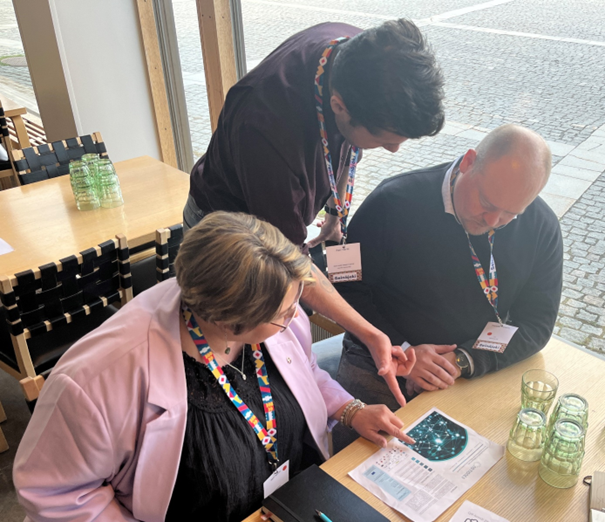
31 May How intelligence practitioners support societal preparedness and resilience?
Laurea University participated in Sisäisen turvallisuuden päivät (Summit for Internal Security) on 25th and 26th May in Seinäjoki, Finland. Laurea disseminated the results from the first 18 months of the NOTIONES -project. The question guiding the discussion was how intelligence practices support the societal resilience and how the intelligence practices could be enhanced with novel technology?
The role of civilian intelligence agencies was especially touched from the perspective of preparedness. Intelligence practitioners assess and analyze threats that can undermine societal stability and resilience. They gather and evaluate information on emerging risks, such as terrorism, cyberattacks, and social unrest. By understanding these threats, they support governments but also organizations, and communities to develop effective response plans.
Intelligence practitioners help to maintain early warning systems that monitor potential risks and provide timely alerts. These systems use intelligence data to identify indicators of impending crises or emergencies, allowing authorities, communities and, eventually individuals to take proactive measures and mitigate the impact on society.
The gathered, analysed and disseminated intelligence is used to conduct risk analysis and vulnerability assessments to identify weak points within society. They evaluate critical infrastructure, key resources, and institutions to determine potential vulnerabilities and recommend measures to enhance resilience. This information helps decision-makers allocate resources and prioritize preparedness efforts.
The annual Summit for Internal Security has a pivotal role in gathering a heterogenous group of participants to discuss of the local, national and international challenges concerning security. Horizon -projects like NOTIONES have an important role in bringing international topics to national forums enrichening the discussion.
Author(s): Pasi Hario, Laurea University of Applied Sciences (LAU)




